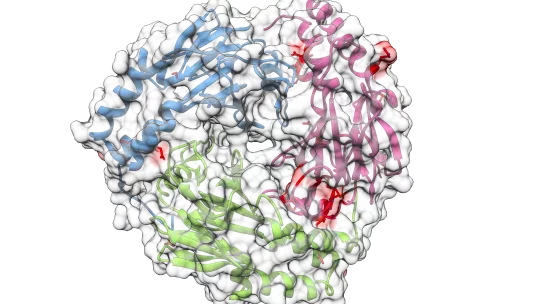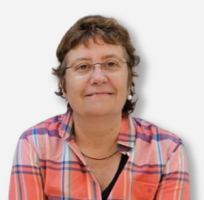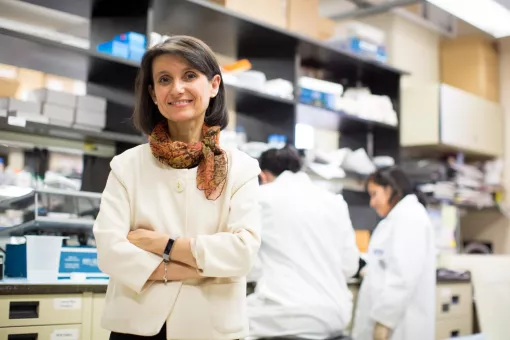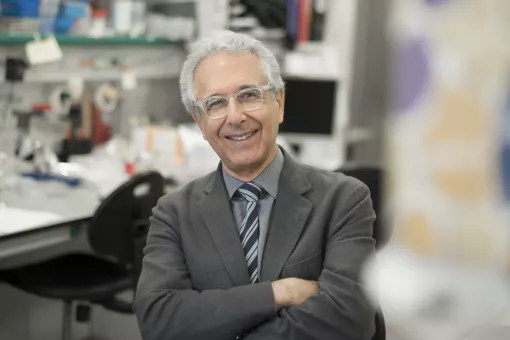Images
International experts in structural biology, such as Nobel laureate Ada E. Yonath, and in massive genomic analysis, such as the bioinformatician Chris Sander—one of the fathers of biocomputation—, are gathering in Barcelona this week with the aim to identify synergies and throw light on the jumble of massive biological data currently available.
The Barcelona Biomed Conference organised by IRB Barcelona and the BBVA Foundation will be held from today 28 to 30 November at the Institut d’Estudis Catalans.
This afternoon, there will be an open debate on “Women in science”, chaired by Ada E. Yonath.
From the massive data obtained from genomic analysis down to the most intricate details of individual proteins. This is precisely what will be addressed by invited speakers in the next Barcelona Biomed Conference, to be held from today 28 to 30 November at the Institut d’Estudis Catalans. Entitled “From genomes to structures: looking at big data with an atomic perspective” and organised by IRB Barcelona and the BBVA Foundation, this event is the 29th in this series of think-tank gatherings.
The invited speakers include international experts in structural biology, such as crystallographer from the Weizmann Institute of Science Ada Yonath, 2009 Nobel laureate for her work on determining the structure of the ribosome, and Hartmut Oschkinat, an authority on the determination of protein structure using NMR, at the Leibniz-Institut für Molekulare Pharmakologie in Berlin. The event involves 22 leaders with complementary expertise, among them one of the pioneers of bioinformatics, Chris Sander, who is currently at the Dana Farber Institute in Boston, a leading Spanish bioinformatician, Alfonso Valencia, at CNIO in Madrid, and research physician-scientist Elías Campo, at the Hospital Clínico de Barcelona, who has participated in studies that have exploited “big data” to identify recurrent mutations in patients with lymphomas.
“Genomic analyses are generating so much information that we are overwhelmed. There is a lot of information and disinformation,” comments Maria Macias, ICREA researcher at the Institute for Research in Biomedicine (IRB Barcelona), structural biologist and co-organiser of the conference together with Hartmut Oschkinat. According to Macias, the time has come for “bioinformaticians, statisticians, and experts in a wide range of disciplines and techniques to jointly design projects that can organise and classify information and allow us to acquire knowledge from these “collections” of data. This is the most exciting part of the process, and it is fantastic to have such an enormous variety and amount of data,” she says.
From “big data” to “big knowledge”
“The amassment of data is not going to clarify things because more doesn’t mean better,” explains Macias. For this scientist, structural biology can provide information on protein structures with mutations and help scientists to better understand what occurs at the molecular level, thus allowing them to get results that may have applications. Protein mutations do not always imply disease and sometimes they can offset the effects of other mutations.
“We have hardly any atomic details of proteins with mutations. To start to resolve them, we must first agree with other specialists on which proteins are the most relevant and which mutations are the most important to tackle. To do this, we need to talk and bring together our various fields of expertise, and this conference is the first step towards this goal,” she says.
In addition to bioinformaticians, biomathematicians, physicians and structural biologists, Oschkinat and Macias are also gathering experts in metabolomics, proteomics and scientists who develop atomic resolution techniques—“those who define the “state of the art” , not those who use it,” explains Macias—, and in nuclear magnetic resonance, crystallography, mass spectrometry and high resolution microscopy. These participants are working in leading centres in France, Switzerland, the Netherlands, Canada, Germany, Great Britain, the US and Japan. (List of invited speakers:
https://www.irbbarcelona.org/sites/default/files/conferences/2016/11/poster_genomes.pdf )
Ada E. Yonath and women in science
This Monday afternooon at 16:50, Ada E. Yonath will be chairing a debate on women in science, which will be open to the public, in addition to the 150 participants registered for the Biomed Conference.
In addition to Yonath (1939), the debate will involve Maria Macias (1964), Camille Stephan-Otto Attolini (1978), doctor in biomathematics and manager of the Bioinformatics and Biostatistics Unit at IRB Barcelona, Hartmut Oschkinat (1957), Elías Campo (1955) and Alfonso Valencia (1959).
Men and women of distinct generations, from different places, and with diverse perspectives will talk about why it is crucial to boost the number of women in science and how the current gender imbalance can be tackled.
About IRB Barcelona
The Institute for Research in Biomedicine (IRB Barcelona) pursues a society free of disease. To this end, it conducts multidisciplinary research of excellence to cure cancer and other diseases linked to ageing. It establishes technology transfer agreements with the pharmaceutical industry and major hospitals to bring research results closer to society, and organises a range of science outreach activities to engage the public in an open dialogue. IRB Barcelona is an international centre that hosts 400 researchers and more than 30 nationalities. Recognised as a Severo Ochoa Centre of Excellence since 2011, IRB Barcelona is a CERCA centre and member of the Barcelona Institute of Science and Technology (BIST).






